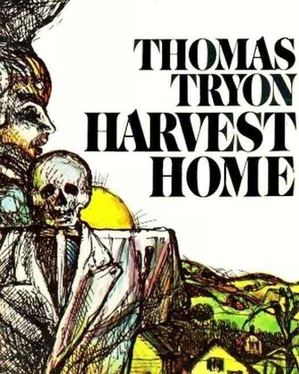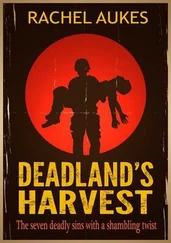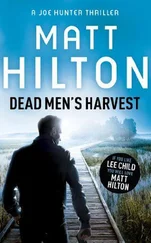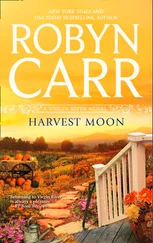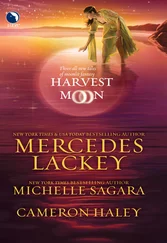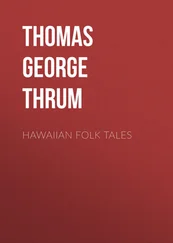Thomas Tryon - Harvest Home
Здесь есть возможность читать онлайн «Thomas Tryon - Harvest Home» весь текст электронной книги совершенно бесплатно (целиком полную версию без сокращений). В некоторых случаях можно слушать аудио, скачать через торрент в формате fb2 и присутствует краткое содержание. Жанр: Ужасы и Мистика, на английском языке. Описание произведения, (предисловие) а так же отзывы посетителей доступны на портале библиотеки ЛибКат.
- Название:Harvest Home
- Автор:
- Жанр:
- Год:неизвестен
- ISBN:нет данных
- Рейтинг книги:5 / 5. Голосов: 1
-
Избранное:Добавить в избранное
- Отзывы:
-
Ваша оценка:
- 100
- 1
- 2
- 3
- 4
- 5
Harvest Home: краткое содержание, описание и аннотация
Предлагаем к чтению аннотацию, описание, краткое содержание или предисловие (зависит от того, что написал сам автор книги «Harvest Home»). Если вы не нашли необходимую информацию о книге — напишите в комментариях, мы постараемся отыскать её.
For Ned and his family, Cornwall Coombe was to be come a place of ultimate horror.
Harvest Home — читать онлайн бесплатно полную книгу (весь текст) целиком
Ниже представлен текст книги, разбитый по страницам. Система сохранения места последней прочитанной страницы, позволяет с удобством читать онлайн бесплатно книгу «Harvest Home», без необходимости каждый раз заново искать на чём Вы остановились. Поставьте закладку, и сможете в любой момент перейти на страницу, на которой закончили чтение.
Интервал:
Закладка:
“Darling, did you say you were going out to sketch?”
“Mm.”
“You’d better hurry; it’s getting late.” I finished the puzzle, tossed the paper aside, and went from the bacchante room into the kitchen, then started out the back door.
“Wait, Ned.” Beth went to the cork bulletin board, referred to a penciled slip of paper and did a few rapid calculations.
“Have you got some cash? Stop at the Widow’s and pay her five dollars. We owe for eggs and honey. And here-” handing me a paper sack-”take her the rest of the cinnamon buns.” She gave me an uncertain look.
I took the bag, at the same time drawing her into my arms.
“Mm?”
“Kate-?”
“I know.”
“You don’t know…” Her frustration put an edge to her voice that I seldom heard. “
“You’re not a mother. You don’t know.”
I held her for a moment, then released her and said, “Don’t worry It’s going to be O.K.” But I said it with an assurance I scarcely felt.
4
When the great back-to-the-land movement began Beth had suggested we make a clean break with the past. By mutual agreement we decided that no New York friends would clutter up our guest room, at least until Christmas. Consequently we were both isolated geographically and cut off from our old acquaintanceships as well. Which was not a problem- our parents all were dead, and what friends we might elect to have come and visit could well wait.
Still, though I had never confessed my doubts to Beth, at times I worried. Where were we to fit into this yesteryear place? Apart from the Dodds, whom would we have for friends? How was Kate going to fare at Greenfarms School? Were we crazy, burying ourselves in a one-horse town, where it was necessary to drive way out to the turnpike to find a shopping center or to see a movie, where people still believed that what was good enough for their fathers was good enough for them? How could they talk to me of painting, or I to them of corn?
Therein seemed to lie the answer. When in Rome… Though I had never been intimate with nature, next year I would plant corn. I would plow up the field at the foot of the property and put in corn and beans and tomatoes and early peas. I would get gardening books; I would learn about the soil and how it might produce, even for a city dweller. Formerly a lover of the pavements, now I would be a lover of the earth. There, at the corner of Penrose Lane, on this bright morning of the Agnes Fair, I laid claim to the land, swearing fidelity to it. I felt it was as Beth had said: today was a new beginning.
I turned left onto Main Street and continued in the direction of the Common. The Widow Fortune’s house, several blocks along Main, was almost obscured behind a corn crop so high it hid a man’s hat. I had heard Robert Dodd say the old lady talked to the corn to make it grow, a concept I found fanciful, supposing plants must grow as they chose, or as they received sustenance; but growing because someone talked to them…
I went down the lane at the side of the small, gabled house and into the dooryard, where I set the sack of buns on the back-porch steps, next to a pair of worn shoes. Beside these was a bunch of flowers in a leaky pail. A large black iron pot sat over a smoking fire in the dooryard, the contents simmering and making thick plopping sounds. Savoring the aroma, I discovered other smells, the pungent musk of damp earth, the dusty tang of broken flowerpots and manured trowels, a tinge of fertilizer. Good country smells. Everywhere I looked, I sensed an earthy richness, an appreciation of growing things, plant life and animal life, all of life. There were patches of garden under the window sills and, along the fence, a bed of cabbages, their pale green heads set in perfect alignment, the rows meticulously tended. No weed, I felt sure, would dare show its face under the Widow Fortune’s careful scrutiny.
My eyes traveled along the rows, to discover the old lady herself, kneeling among the cabbages. Oblivious to my arrival, she held herself upright, with bowed head, her hands clasped over her breast, and I guessed she might be praying, though why in a cabbage patch I had no idea. The soft morning light lay about her in a wash of water-color tints, all mist and mother-of-pearl, violet and gray and rose; and observing the motionless form, I thought, Here is someone who appreciates the joys of a solitary contemplation of the day. Presently she lifted her head, and, still not noticing me, she rose, digging her fisted hands in the small of her back to ease it, and scanning the sky overhead, lost in some cloudy reverie. Then, lifting her skirts that she had pinned up for purposes of convenience, she peered at the ground around her and spoke.
“Come, now, slow one, have a bite.” She bent and broke off some cabbage leaves and dropped them beside a large brown stone at her feet. As though by some feat of sorcery, the stone moved. I blinked, then realized it was a large tortoise whose shell resembled a stone. While it proceeded to eat the cabbage leaves, she bent down and spoke to it like a witch to her familiar, then straightened, her black form real and corporeal amid the dissolving mists.
“Good morning,” I called at last. She turned, peering at me through round, silver-rimmed spectacles, waiting for me to approach. “Watch your hoofs,” she said in a forthright tone, “don’t tread on my cabbages.” A sizable woman, she presented a handsome figure, Junoesque in its stateliness: large head, straight neck, full shoulders. Though time had tugged her here and there, causing the neck to sag under the firm chin, her skin was pulled tight and shone with a robust glow over the rosy flesh. How old was she? I wondered again. Age had not seemed to wither her; there was nothing crone-like in her appearance; her constitution appeared firm, her heart stout, and if her teeth were not her own she did not yet walk with a cane.
If someone had driven up at that moment and asked me my first, surest impression of the Widow Fortune, I would have said comfortable and motherly.
“You’re an early riser,” she said briskly.
“‘ Carpe diem ,’” I quoted, watching where I walked.
“Can’t speak French,” she replied; the merry twinkle in her eye told me she knew it wasn’t French.
“‘Seize the day,’” I translated.
“It’s the early mornin’ that’s got the gold in its mouth, as they say. I like to be up before all the trammel starts.”
When she spoke, it was with a firm authority, a distinct voice that knew what things were about. Listening, she had a gentle, luminous expression, humorous but not mocking.
“Beth sent you some cinnamon buns for breakfast.” I nodded toward the back-porch steps.
“Well, now, that’s neighborly. I’ve got the kettle on; let me put the cow to pasture, and you’ll come and have a cup of tea with me.” It sounded less an invitation than a command performance, and I found myself nodding in accord. Her step was spry as I followed her along a footworn path to the barn, where she disappeared for a moment, then reappeared, herding a large brown-and-white cow into a small pasture, carefully setting in the fence bar to keep the animal out of the corn.
“Brown Swiss.” She spoke with a touch of pride, explaining that the cow, whose name was Caesar’s Wife, was descended from the first herd of Brown Swiss brought from Switzerland to New England almost three centuries before. Caesar’s Wife was the Widow’s treasure.
She led me back the way we had come, stopping to stir the boiling pot with a large wooden paddle. “Hog,” she said briefly, and I watched the pieces of meat and fat rise to the surface. “One of Irene Tatum’s. Slaughtered it myself last week. Most mysterious thing! Hog had two stomachs, if you can believe it.” She gave me a look. “Guess what I found in one of ‘em? A collar button.” Her look sharpened, as though testing me. “Wouldn’t you call that an augury?”
Читать дальшеИнтервал:
Закладка:
Похожие книги на «Harvest Home»
Представляем Вашему вниманию похожие книги на «Harvest Home» списком для выбора. Мы отобрали схожую по названию и смыслу литературу в надежде предоставить читателям больше вариантов отыскать новые, интересные, ещё непрочитанные произведения.
Обсуждение, отзывы о книге «Harvest Home» и просто собственные мнения читателей. Оставьте ваши комментарии, напишите, что Вы думаете о произведении, его смысле или главных героях. Укажите что конкретно понравилось, а что нет, и почему Вы так считаете.
